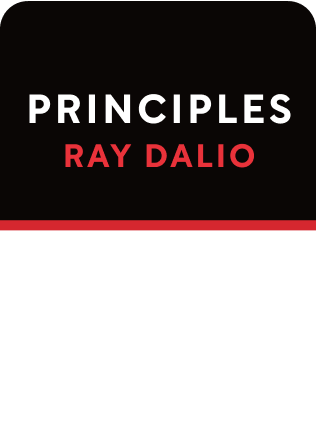

This article is an excerpt from the Shortform summary of "Principles: Life and Work" by Ray Dalio. Shortform has the world's best summaries of books you should be reading.
Like this article? Sign up for a free trial here .
Can you work on understanding complex systems using Ray Dalio’s Principles? How can understanding complex systems help you succeed?
Understanding complex systems means that you’re able to see your company as a machine, and see yourself as a machine. Thinking in this way helps you tackle complicated problems.
Read more about understanding complex systems and why this can help you make good decisions.
Understanding Complex Systems as Machines
Think of yourself as a machine. You take in inputs, and you produce an output. For example, you take in the inputs of your goals, resources, and current skills, and you produce the output of progress toward your goals.
Your aim is to design your machine to produce better outcomes. Start by understanding complex systems.
If you view yourself top-down like a machine, it becomes easier to see your weaknesses objectively. If your air conditioner broke, you wouldn’t tolerate it. You’d find what was wrong, fix it, and try to prevent it from breaking again. Why should you view yourself any differently? Your personal weaknesses are problems in the machine that cannot be tolerated and must be fixed.
In this way, think of yourself as a machine operating within a machine. You are both a worker in the machine, as well as a designer. You can alter your machines to produce better outcomes.
This means figuring out whether you yourself are in the right role. Can you really be trusted to work in your position, or do you need to be fired?
Work Principles
The Work Principles are really just his Life Principles applied at organizational scale. Understanding complex systems can help you apply these work principles.
Like with personal life, the ultimate goal in work is to find the truth by leveraging the strengths of the group. The trick is to do this with thoughtful disagreement while bypassing the inevitable emotional conflicts that arise.
The Organization as a Machine
A great manager is essentially an organizational engineer in charge of building the machine.
- They understand the parts in the machine (the people, the processes, the culture) like a foreman understands his tools.
- They work hard to maintain and improve their machines.
- They study how well the machine is doing with metrics. They compare the current outcomes with the ideal outcomes, and find ways to close the gap.
- They worry about what can go wrong with the machine. They constantly survey the landscape to find suspicious signs of problems.
- They study what goes wrong in the machine—either it’s a problem with the machine’s design or with the people.
The ideal is to create a machine that works so well you can sit back, barely do anything, and watch beauty happen.
The 5-Step Process, Applied to Organizations
Now that you’re understanding complex systems, you can apply to 5 step process to them. Just like individuals, organizations employ the 5-Step Process to evolve and continuously improve.
- Set clear goals. Define the metrics clearly. Make sure people know what their responsibilities are.
- Identify problems and don’t tolerate them. Make it an obligation to report mistakes. Have as many people looking for problems as possible.
- Diagnose your problems to find root causes. Figure out why the machine didn’t operate the way you expected. Find out whether someone lacks the ability to do the job and needs to be replaced.
- Design improvements to your machine. Visualize the plan working, like a movie script, picturing who will do what, when.
- Do the tasks required to completion.

———End of Preview———
Like what you just read? Read the rest of the world's best summary of Ray Dalio's "Principles: Life and Work" at Shortform .
Here's what you'll find in our full Principles: Life and Work summary :
- How Ray Dalio lost it all on bad bets, then rebounded to build the world's largest hedge fund
- The 5-step process to getting anything you want out of life
- Why getting the best results means being relentlessly honest with everyone you work with





